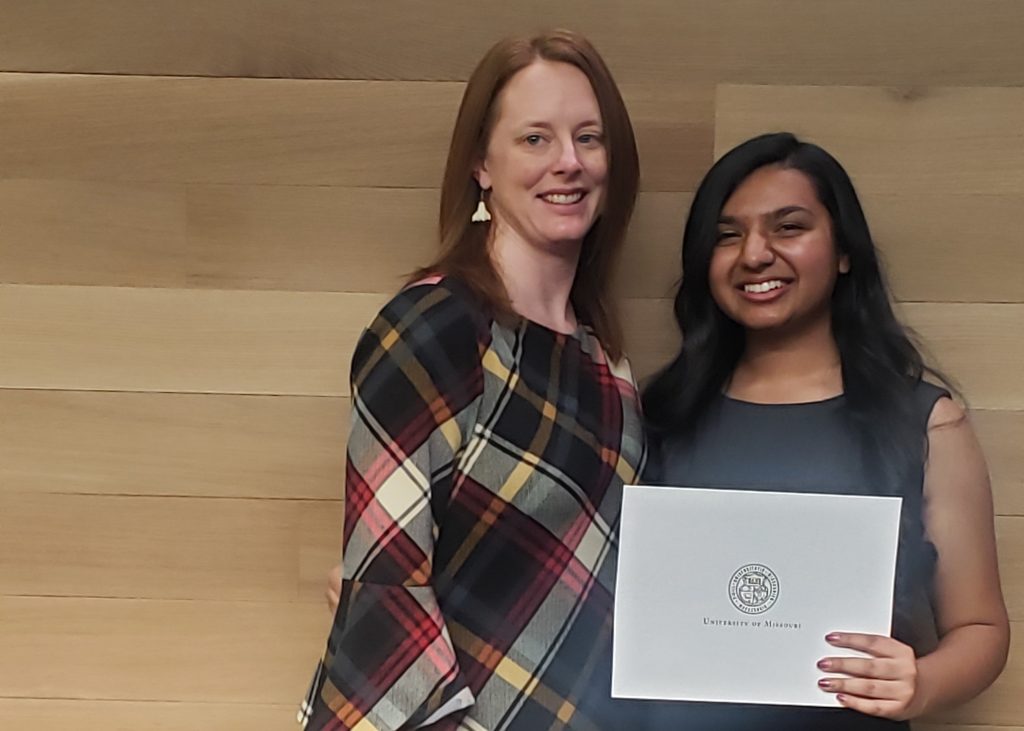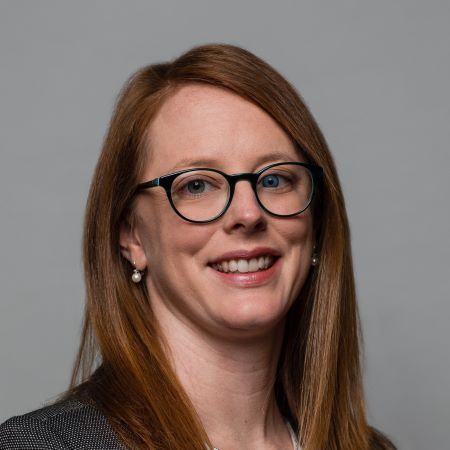News & Announcements
Undergraduate researcher Rucha Kelkar’s research is ever-evolving
Dec. 15, 2022

By Gracie Hedenberg
Though change is sometimes hard, adaptability is essential in research. Health Sciences student Rucha Kelkar is an undergraduate researcher studying how head and neck cancer treatment has affected the swallowing-related quality of life for patients, though that’s not always what her project centered on.
As a Discovery Fellow and Cherng Summer Scholar, Kelkar is involved in some of the most prestigious research opportunities an undergraduate student can participate in. She works with some of the best and brightest within the university and university hospital system, which gives her lots of opportunities for growth, change and improvement.
Kelkar’s research experience began in high school when she studied the effects of e-cigarette usage on the bacteria within participants’ respiratory tracks. She kept the theme of e-cigarette usage in her initial research at MU but shifted her focus to different, smaller samples of e-cigarette users, such as HPV+ head and neck cancer patients.
She measured how vaping affected the participants’ swallowing and communication abilities, and most data came from looking at peoples’ charts. With a medical chart, there is only so much information included, and many did not include whether the patients used e-cigarettes specifically, so she again changed her focus, this time to head and neck cancer patients’ swallowing-related quality of life following cancer treatment.
“Something I’ve learned about research is to always be prepared for change,” Kelkar said. “There are always going to be moments when your plan doesn’t happen accordingly – being able to step back for a moment and reconfigure your path is vital. Any information that you collect during a project is important and can be used to further examine a problem.”
Kelkar has been able to adapt to these changes and implement the learning from one research project to the next, as well as apply what she’s learned in her Health Sciences curriculum.
“Research gives you the chance to apply the theoretical information you learn in class to a real-life project,” Kelkar said. “In statistics class, I learned the theory about how to analyze data and perform certain statistical tests, but in this project, I truly understood how to interpret the data and apply it to a real-life problem.”
Her mentors, Laura Dooley from the Ellis Fischel Cancer Center and Stephanie Knollhoff, assistant professor in Speech, Language and Hearing Sciences, both have encouraged her from one project to the next and have informed Kelkar’s goal to become a physician in the future.
Dr. Knollhoff has supported Kelkar every step of the way; she taught her how to conduct literature reviews, communicate with lab members, use questionnaire and analytical platforms, and introduced her to physicians working on this project.
At Ellis Fischel, Dr. Dooley specializes in the treatment of cancer in the ear, neck, throat and pituitary glands, and Kelkar shadows her during her surgeries and patient interactions.
“Something I especially value about my research is the professional opportunities I have, such as shadowing Dr. Dooley,” Kelkar said. “I get to sit in on surgeries and patient interactions which puts a face to my project – I get to see the patients I could potentially help.”
Kelkar, an aspiring physician, chose to major in Health Sciences on the pre-med track rather than biology or chemistry, which are common choices for students who plan to attend medical school. She says that education in Health Science will prepare her with a wide scope of knowledge that will prepare her for future patient care.
“My research in Health Science is giving me a holistic perspective on the field of medicine,” she said. “There are a lot of factors that go into medicine – it’s not just how a person is biologically; it’s about caring for the whole person.”
Kelkar says she plans to continue her research, and that research has taught her skills she will use as a physician in the future, from communication to chart review to an understanding of innovation and how to read a research study.
“Research and medicine are interconnected; one can’t happen without the other,” she said. “Having a solid research foundation can inform the type of person I want to be when I become a doctor.”
Featured in this post
